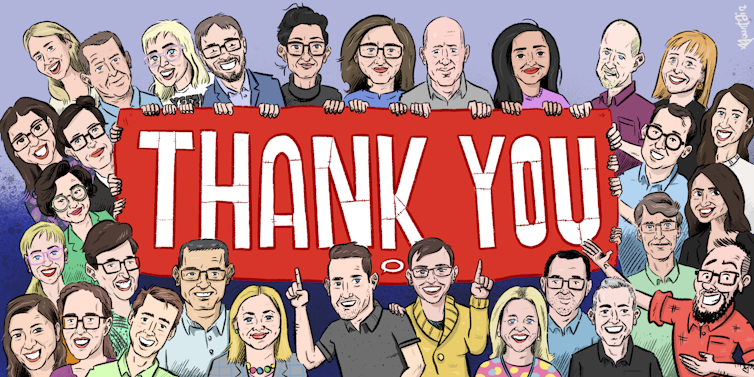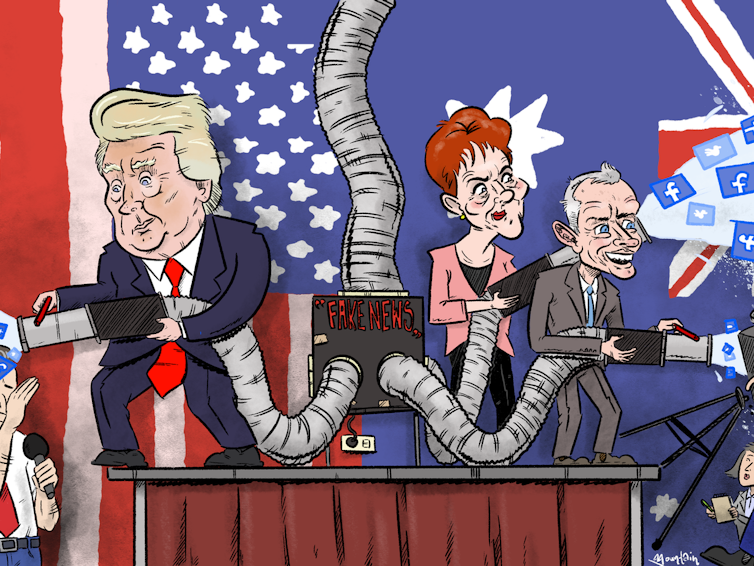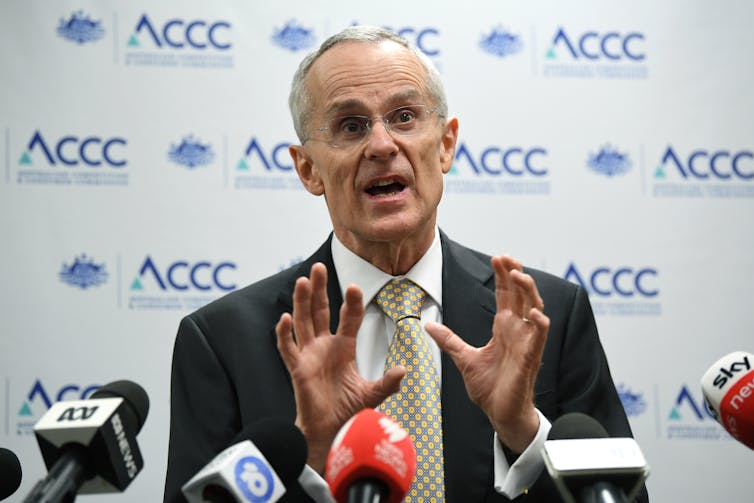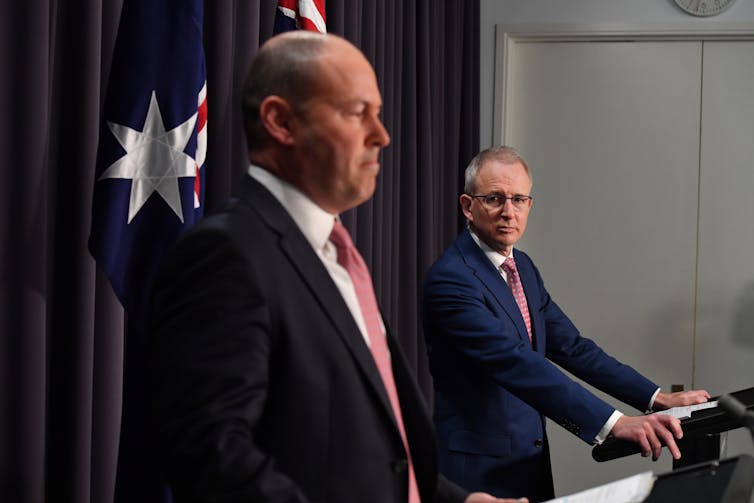The Conversation's submission to the Australian Senate Inquiry into the News Media Bargaining Code
- Written by Misha Ketchell, Editor & Executive Director, The Conversation
On 10 December 2020, the Australian Senate established an inquiry into a government bill proposing a ‘mandatory bargaining code’ between news media organisations and digital platforms including Google and Facebook. The Conversation Australia & New Zealand made the following submission:
About The Conversation
The Conversation is a unique global journalism project that in just 10 years has become the world’s leading publisher of research-based news and analysis. We pair professional editors with academics to publish articles that share new research and explain issues in the news. All our content is free to republish, with the aim of sharing trusted information with the widest possible audience.
Since it was founded in Melbourne in 2011, The Conversation has expanded to operate across Australia, New Zealand, the UK, US, France, Spain, Africa, Indonesia and Canada. It is read by more than 25 million people per month directly and more than 64 million per month via republication. In Australia, our editors have collaborated with over 17,540 academic authors.
A unique Australian not-for-profit start-up, our global impact is guided by a clear purpose: to provide access to trustworthy explanatory journalism essential for a healthy democracy.
We place a high value on trust. All authors and editors sign up to our Editorial Charter. Contributors must abide by our Community Standards. We only allow academic authors to write on subjects on which they have expertise. Potential conflicts of interest must be disclosed.
Our funding comes from partners from the university and research sector, some philanthropic organisations and more than 19,400 individual donors.
 Cartoon depiction of The Conversation’s Australia + New Zealand-based staff members.
Wes Mountain
Cartoon depiction of The Conversation’s Australia + New Zealand-based staff members.
Wes Mountain
Public interest news in Australia
Quality information is as important to democracy as clean water is to health. Democracy is a decision making process, and without reliable information, voters, bureaucrats, civil society leaders and politicians cannot make informed decisions with surety and integrity.
Public interest journalism is the primary means by which quality information is communicated to the Australian public. It provides essential context to help people make sense of a complex and confusing barrage of information. It provides essential insights that help us understand our politics, our environment, our culture and our history. It underpins the health and wellbeing of society.
That is why The Conversation was founded – to ensure citizens and decision makers can freely access quality information written by experts in their field.
The consequences of uninformed decision-making can be dire and, indeed, deadly. A BBC investigation into the effects of coronavirus misinformation found that online rumours led to mob attacks in India, mass poisonings in Iran, physical and arson attacks against telecommunications engineers in the UK, and people swallowing fish tank cleaner and other harmful chemicals in the US. Needless to say, this is not the kind of information environment we want to see in Australia.
The Conversation’s reliance on Digital Platforms
In Australia, a large proportion of The Conversation’s readership arrives via digital platforms. Google accounts for 53% of traffic and Facebook 8%. When Google changes its algorithm, or Facebook changes the way in which it presents news, it can have a big impact on our onsite audience. It should be noted, however, that onsite audience is only one measure of overall reach (albeit a very important one).
Engagement from audiences on platforms like Facebook and Instagram is also very high when measured in terms of likes, shares, follows and comments. As of January 2021, The Conversation Australia has 325,735 Facebook followers and over 21,000 Instagram followers. Many people interact with The Conversation news content on these platforms without clicking through to read the full article.
Our editors are increasingly translating news articles into short images and tiles for a younger and more diverse audience on social platforms. Where we once might have thought of information presented in this way as an advertisement for the journalism and a driver of onsite traffic, we now recognise that for many harder-to-reach audiences it is a form of journalism itself.
This social media journalism is costly to produce but it is also vital, given the problems we have seen with misinformation and disinformation on social platforms. The growing reliance on social media as a source of news, particularly among younger audiences, makes it even more important that publishers turn their attention to presenting reliable information on the platforms where the audiences are spending their time.
Currently there is a global effort to eradicate misinformation though fact checking. While this is undeniably important work, we believe that debunking misinformation is only a partial solution. To achieve a healthy media ecosystem, you need to do more than eliminate contaminants – it is important to have a critical mass of quality information in the mix to dilute, counterbalance and drown out false claims.
This is particularly important to maintain an informed citizenry that is necessary for our democracy to remain healthy, but that is not the sole value. Digital platforms such as Google and Facebook would have a significantly diminished product in the absence of the work of journalists and other professional content creators who create reliable and high quality content.
 Cartoon, October 2019.
Wes Mountain
Cartoon, October 2019.
Wes Mountain
While Google is right to argue that there is a value exchange, and commercial publishers do derive value from the traffic Google directs to them, it is also true to say that digital platforms derive a significant value from journalism, particularly in comparison to other forms of user-generated content. Without the journalism, and other forms of professionally curated content, Google search results would be wildly unreliable.
Funding from Digital Platforms
Digital platforms have provided funding via grants to The Conversation over the past two years, which included access to expertise, tools and techniques that are helping us grow and monetise our audience via reader donations.
As a not-for-profit, public interest news provider, The Conversation exists not to create a financial return to shareholders but rather to provide quality and reliable information for the public good.
News products and platforms such as Google News Showcase or Facebook news tab, which can help us extend our reach and impact with audiences, are valuable.
It should be noted that the work of the ACCC and the Digital Platforms Inquiry has played a role in encouraging collaboration and knowledge-sharing between publishers and digital platforms. It is a welcome development.
 ACCC Chairman Rod Sims during a 2019 media conference about the Commission’s legal action against Google.
Joel Carrett/AAP
ACCC Chairman Rod Sims during a 2019 media conference about the Commission’s legal action against Google.
Joel Carrett/AAP
Recommendations
Overall, we believe the Treasury Laws Amendment (News Media and Digital Platforms Mandatory Bargaining Code) Bill 2020 (the News Media Bargaining Code) can make a positive contribution to the maintenance and development of a healthy media ecosystem in Australia. It does this by creating a more level playing field for negotiations over appropriate compensation between digital platforms and publishers.
We also welcome the inclusion of the ABC and SBS, which will enable the bargaining code to support public broadcasters and their crucial contribution to the Australian media.
We agree with concerns expressed in other submissions that the restriction that news businesses must have annual revenue of over $150,000 might rule out some new and smaller media players and agree the cut-off could be reduced.
 Treasurer Josh Frydenberg and Minister for Communications Paul Fletcher at a press conference about the News Media Bargaining Code on December 8, 2020.
Mick Tsikas/AAP
Treasurer Josh Frydenberg and Minister for Communications Paul Fletcher at a press conference about the News Media Bargaining Code on December 8, 2020.
Mick Tsikas/AAP
We have also previously expressed concerns regarding the three part test that ACMA will use to determine whether a news business can participate in the Mandatory Bargaining Code. However we are encouraged by the Bill defining “core news content” as content that “reports, investigates or explains” issues that are relevant to “engaging Australians in public debate and in informing democratic decision making”.
This definition appears to cover the type of explanatory journalism produced by The Conversation and many other independent media outlets that focus on the timely analysis of news that is directed at better informing Australian citizens.
While we welcome the News Media Bargaining Code’s proposed algorithm notification provisions as useful to all publishers, we accept prima facie the arguments made by Google and Facebook that the currently proposed approach may be unworkable and require compromise.
We thank the Senate Economics Legislation Committee for their careful consideration of this important topic, and we welcome the opportunity to address these issues in more detail.
Authors: Misha Ketchell, Editor & Executive Director, The Conversation


















